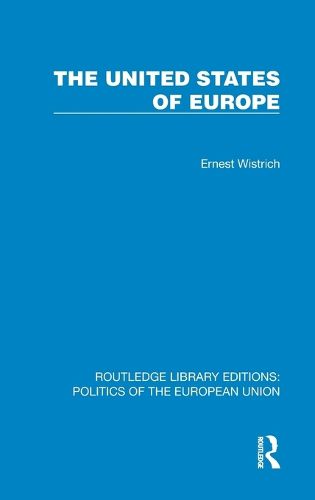Readings Newsletter
Become a Readings Member to make your shopping experience even easier.
Sign in or sign up for free!
You’re not far away from qualifying for FREE standard shipping within Australia
You’ve qualified for FREE standard shipping within Australia
The cart is loading…






The United States of Europe (1994) is a sequel to Wistrich's acclaimed After 1992 (also reissued as a Routledge Revival), a book that made a significant contribution to the debate on European integration. Many of the recommendations he made in After 1992 have been adopted, and others, such as the enlargement of the European Community and the adoption of a single currency, are now likely to take place. With The United States of Europe the author seeks to address the developments that have taken place in Europe since his first book, with an emphasis on political issues rather than 'the market'. He looks in detail at the Maastricht Treaty and its implications for future European union, discussing the reasons for the strong opposition in Britain and Denmark. He examines the implications of change in Eastern Europe and the geopolitical consequences of the break-up of the USSR, giving attention to the role of an enlarged and unified EU in international relations and looking at its role within the United Nations.
$9.00 standard shipping within Australia
FREE standard shipping within Australia for orders over $100.00
Express & International shipping calculated at checkout
The United States of Europe (1994) is a sequel to Wistrich's acclaimed After 1992 (also reissued as a Routledge Revival), a book that made a significant contribution to the debate on European integration. Many of the recommendations he made in After 1992 have been adopted, and others, such as the enlargement of the European Community and the adoption of a single currency, are now likely to take place. With The United States of Europe the author seeks to address the developments that have taken place in Europe since his first book, with an emphasis on political issues rather than 'the market'. He looks in detail at the Maastricht Treaty and its implications for future European union, discussing the reasons for the strong opposition in Britain and Denmark. He examines the implications of change in Eastern Europe and the geopolitical consequences of the break-up of the USSR, giving attention to the role of an enlarged and unified EU in international relations and looking at its role within the United Nations.